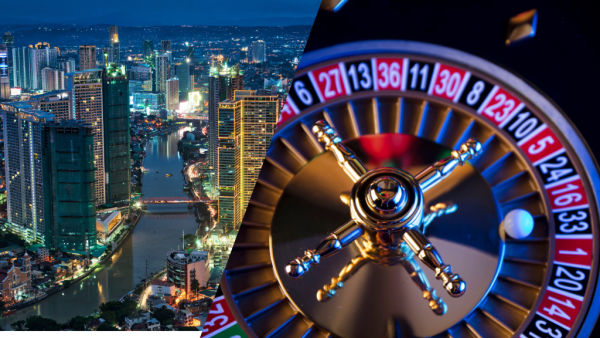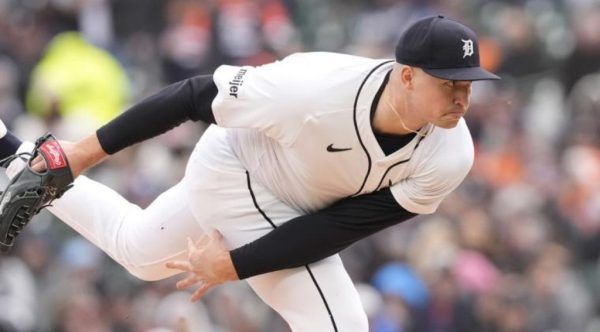Bipartisan efforts from Rep. Dina Titus (D-Nev.) and Rep. Guy Reschenthaler (R-Pa.) aim to halt a federal excise tax on sports betting
By Mark R. Smith, U.S. Correspondent
Imposing the excise tax on legal, licensed gaming operators puts them at a competitive disadvantage against illegal operations. While the current rate of .25% is not as ruinous as the original 10% bracket, it is a cost and the removal of the levy would make legal operators slightly more competitive in the market.
When the federal excise tax on sports gaming was enacted in 1951, only one of the United States, Nevada, offered legalised gambling.
Today, with sports gaming live and legal in 21 states, legal (but not yet operational) in five more and 14 other states in the active and/or pre-filed legislation stage, Rep. Dina Titus (D-Nev.) and Rep. Guy Reschenthaler (R-Pa.) are leading their second charge to eliminate the tax in an effort to even the playing field with illegal online and offshore operators.
The tax was initially “part of a spurt of anti-gambling legislation” sparked by the Kefauver Committee, a Senate panel headed by Sen. Estes Kefauver (D-Tenn.) that explored organised crime in interstate commerce in 1950 and 1951, said David G. Schwartz, gaming historian at the University of Nevada Las Vegas.
The law to institute the excise tax was originally passed in 1951 at a rate of 10 percent; it was lowered to 2 percent in 1974, then lowered again a decade later to the present rate of .25 percent.
It required those who accepted bets, such as employees in a sportsbook, to pay an [annual] $50 licence and pay the excise tax, “but the law specifically said that registering would not provide immunity from prosecution,” said Schwartz.
Since the list of those who had registered was publicly available, those who registered were essentially identifying themselves to police as illegal bookies.
The tax was originally passed “to assist in the prosecution of those who offered sports betting illegally, but making them tax cheats in addition to illegal bookies,” he said. “Today, with a national, regulated industry, the need for an additional federal tax on handle has been questioned.”
In an industry known for tight margins, jettisoning the tax would be a way to mitigate competition from the illegal operators.
According to the Washington, D.C.-based American Gaming Association (AGA), between June 2018 and February 2021, sports betting operators paid an estimated $115 million in federal excise tax. For the first two months of 2021, operators paid $20 million in excise taxes.
Greg Gemignani, partner with the Las Vegas law firm of Dickinson Wright, agreed with Schwartz that the law is “antiquated,” adding that it mainly came about back in the day “because Sen. Estes Kefauver was trying to make a name for himself and the federal government wanted to tax sports gaming out of existence.”
At that point Sen. Patrick McCarren (D-Nev.) was not able to kill the bill, Gemignani said, but was able to get exemptions for table games, gaming devices (such as slot machines) and pari-mutual wagering. However, sports betting did not get an exemption.
At that point, Nevada was the only state that had sports wagering in the form of turf clubs, which focused on horse racing,” he said. “There were no sportsbooks back then. Sports turf clubs were left holding the bag and it put most of them out of business.
Over time, the effect of the excise tax has fuelled a result that is the opposite of its intention. “While the federal excise tax’s original purpose was to punish illegal operators, this antiquated tax now aids the offshore, illegal market and disadvantages safe, legal and regulated sportsbooks nationwide,” said Bill Miller, president and CEO of the AGA.
“If Congress wants to position the legal sports betting market for success, it needs to eradicate this unnecessarily burdensome tax to level the playing field for legal sportsbooks,” said Miller. “
I’m grateful to Congressional Gaming Caucus Co-Chairs Reps. Titus and Reschenthaler for introducing this much-needed legislation that will continue fostering growth for the legal market and better protect customers.”
Whether you’re a startup looking for seed investments or an established company looking for an exit, we’ve got your back! We’ll connect you to the right people to make sure you’ll get the best evaluation for your business. What’s more, we won’t charge you a dime for this consultation!















